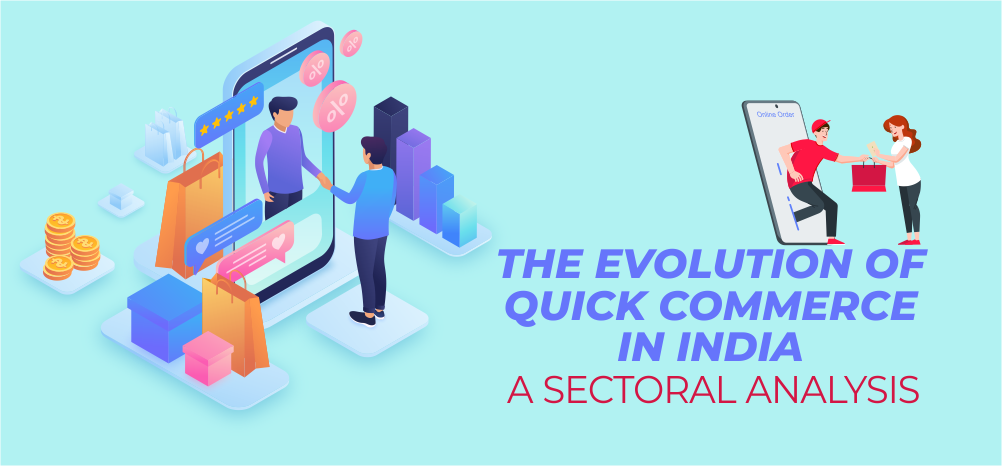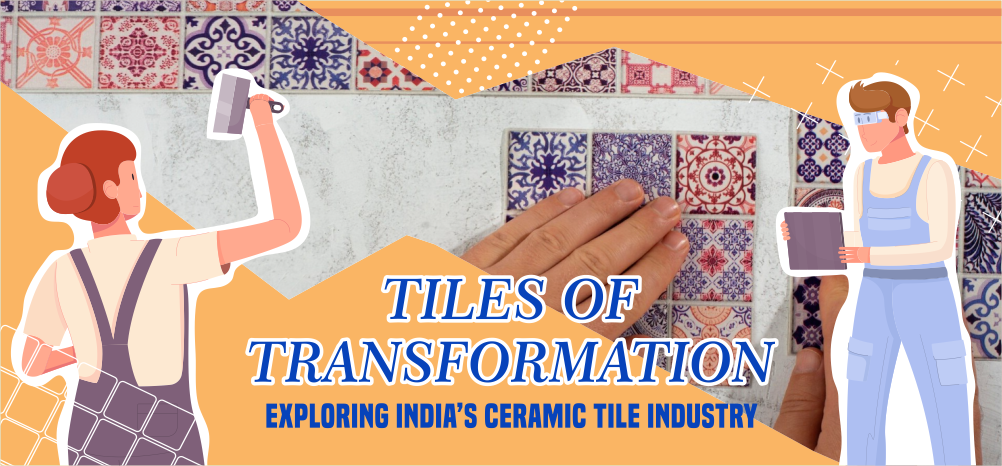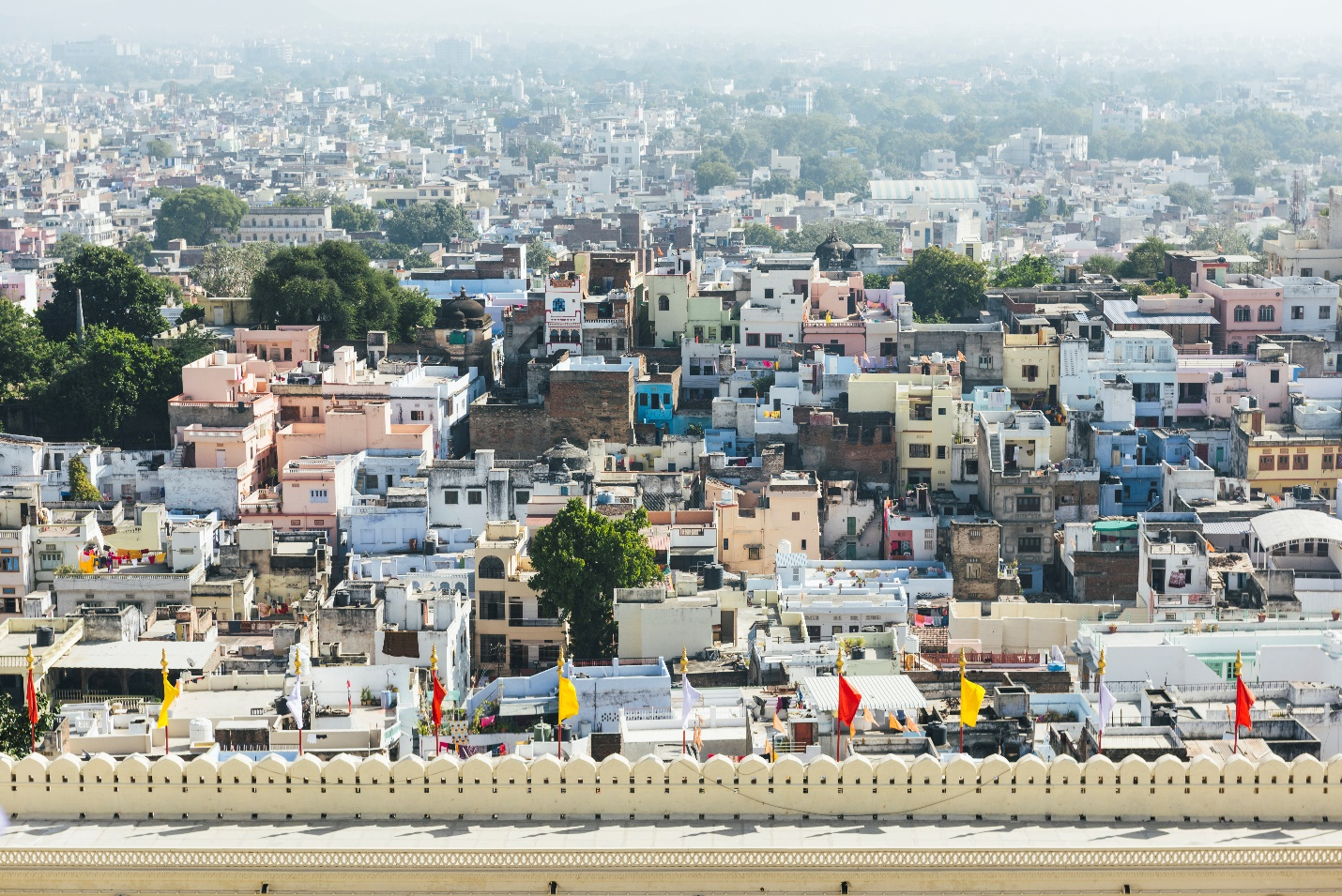India’s retail industry is one of the fastest growing in the world and ranks among the top three preferred global retail destinations. Supported by healthy economic growth, rising disposable incomes, urbanisation, and evolving consumer preferences, the sector is witnessing rapid expansion not just in metros but also across tier II and III cities. India also ranks high globally in terms of per capita retail store availability, reflecting its vast consumer reach and strong market potential.
In FY24, India’s direct selling industry was valued at Rs. 22,022 crore (US$ 2.57 billion). The fast-moving consumer goods (FMCG) market, a key driver of retail, stood at Rs. 20,99,405 crore (US$ 245 billion) in 2024 and is projected to reach Rs. 94,94,452 crore (US$ 1.1 trillion) by 2033, growing at a CAGR of 17.33% during 2025-33. Inflation trends have remained stable, with India’s CPI-based annual inflation at 1.55% in July 2025, including rural food inflation of -1.74% and urban food inflation of -1.90%.
India's fastest consumer growth is coming from Tier-II and Tier-III cities, which are adding nearly 100 million new consumers to branded and organised retail by 2030. The rise of these cities is driving national consumption patterns, digital payments, and the expansion of D2C brands with faster trial and repeat purchases.
E-commerce has emerged as a key growth engine, with India’s online retail market valued at Rs. 10,71,125 crore (US$ 125 billion) in 2024. It is expected to grow nearly fivefold to Rs. 47,12,950 crore (US$ 550 billion) by 2035, driven by digital payments, internet penetration, and rising consumer adoption. India is currently the world’s second-largest e-retail market and, as of FY25, has the third-highest number of online shoppers globally. The e-retail segment alone is projected to generate Rs. 14,56,220-16,27,540 crore (US$ 170-190 billion) in GMV by 2030, supported by an expanding shopper base and innovative business models, according to Bain & Company and Flipkart.
Organised retail is also on a strong growth trajectory. The segment is projected to reach Rs. 19,70,870 crore (US$ 230 billion) by 2030 from Rs. 11,31,108 crore (US$ 132 billion) in 2024, capturing over 35% of the total market. By 2030, India’s overall retail sector is expected to exceed Rs. 1,37,10,400 crore (US$ 1.6 trillion), up from Rs. 81,57,859 crore (US$ 952 billion) in 2024. To support this expansion, India’s seven major cities are expected to add 16.6 million sq. ft. of prime retail space in new shopping malls by the end of 2026, according to Anarock.
Global players continue to view India as one of the most promising markets, with strong interest in tapping into its vast consumer base. Competitive labour costs, resource availability, and supportive government measures such as tax incentives and FDI-friendly policies have further enhanced India’s appeal as a retail investment hub.
India's retail sector leasing surged to 3.2 million square feet in Q3 2025, marking a 65% YoY growth across the top seven cities. Delhi-NCR led the leasing with new mall constructions, facilitating new store openings in key micro markets. D2C brands are expanding their physical presence in fashion, apparel, jewellery, cosmetics, and wellness categories. India’s retail sector saw continued acceleration with over 130 new store openings in October 2025 across various brands including hypermarkets, supported by significant funding boosts, signalling expansion and consumer demand growth.
As of March 2025, Reliance Retail operates 19,340 stores across with a retail area of over 77.4 million sq. ft. in India.
India's luxury retail market is experiencing rapid growth, with leasing activity increasing by 90% YoY in Q1 2025, driven by the expansion of global and domestic brands across major cities. This surge is attributed to evolving consumer demographics, rising incomes, and the country's potential to become a leading luxury market in the Asia-Pacific region.
India’s e-commerce market was valued at Rs. 10,71,125 crore (US$ 125 billion) in 2024 and is projected to reach Rs. 47,12,950 crore (US$ 550 billion) by 2035, driven by rising internet penetration, digital payments, and increasing consumer demand for online retail. India’s digital economy is expected to touch Rs. 68,55,200 crore (US$ 800 billion) by 2030 from Rs. 3,444,738 crore (US$ 402 billion) in 2023 and employs around 14.67 million workers.
India's retail market is poised to reach US$ 1 trillion by 2030. This growth is driven by rising incomes, faster digital adoption, and the rise of an aspirational consumer class. New retail formats like e-commerce, quick commerce, and D2C brands are scaling faster than conventional companies, indicating a structural shift in shopping habits and huge investor interest.
India’s private consumption has nearly doubled to Rs. 1,83,30,900 crore (US$ 2.1 trillion) in 2024 from Rs. 87,29,000 crore (US$ 1 trillion) in 2013, growing at a 7.2% Compound Annual Growth Rate (CAGR), outpacing the US, China, and Germany, according to a Deloitte India and Retailers Association of India report.
By 2030, India’s per capita income is expected to exceed Rs. 3,49,000 (US$ 4,000) from Rs 2,34,859 (US$ 2,740) in FY25, unlocking new business opportunities across sectors. Expanding digital commerce, growing access to credit, and fintech-driven financial inclusion further accelerate this consumption boom.
The Indian Retail sector has seen good investments and developments in the recent past.
In February 2025, Tim Hortons India opened its sixth store in Mumbai, located at the First International Financial Centre in Bandra Kurla Complex, increasing its nationwide total to 39 outlets.
IKEA initiated a second-wave expansion in August 2025 by emphasising stronger local sourcing, improved logistics, and a deeper omnichannel approach after having previously invested over Rs. 10,500 crore (US$ 1.23 billion) in India.
On February 24, 2025, Ms. Helena Kuylenstierna confirmed at the Great India Retail Summit that H&M India now operates 65 stores with the 66th opening soon in Gangtok and has achieved 85% use of recycled or sustainably sourced materials, progressing towards its 100% by 2030 target.
In July 2025, the Andhra Pradesh government allotted LuLu Group a 99-year lease over 13.74 acres on Vizag’s Beach Road and 4.15 acres at Vijayawada’s old bus depot to develop mega shopping malls offering approximately 13.5 lakh sq ft and 2.23 lakh sq ft respectively under special tourism policy exemptions.
The India e-commerce warehousing market size reached Rs. 72,684 crore (US$ 8.5 billion) in 2024, and expected to reach Rs. 3,04,416 crore (US$ 35.6 billion) by 2033, exhibiting a growth rate (CAGR) of 17.28% during 2025-33.
In January 2025, Hindustan Unilever acquires 90.5% stake in beauty brand Minimalist at Rs. 2,955 crore (US$ 341.1 million) valuation.
In December 2024, the Competition Commission of India (CCI) has approved the acquisition of a 72.8% stake in Prataap Snacks Ltd by Authum Investment & Infrastructure Ltd and Mahi Madhusudan Kela. This acquisition marks a significant shift in ownership for the snack brand Diamond.
India’s retail trading sector attracted Rs. 41,645 crore (US$ 4.86 billion) FDIs between April 2000-June 2025.
To improve the business climate and make it simpler for foreign companies to register fully owned subsidiaries in India, the Indian government has implemented several rules, regulations, and policies.
In FY25, Zudio more than doubled its store count, from approximately 341 to 765 outlets across 235 cities, driving its milestone of over Rs. 8,569 crore (US$ 1 billion) in revenue.
In 2024, 27 global brands entered India, nearly double the pre-pandemic average of 12, reflecting the country’s rise as the world’s third-largest retail market, fuelled by a young, tech-savvy consumer base, expanding mall infrastructure and rising disposable incomes.
In FY25, Nykaa completed its largest-ever physical retail expansion by adding 50 stores, bringing its total to 237 across 79 cities.
In FY25, UPI dominated India’s digital payments, handling 185.8 billion transactions and contributing 83.4% of the total transaction volume.
By October 1, 2025, UPI transactions in retail saw a year-on-year volume rise of 31% and a 21% value increase compared to the previous year, reflecting rapid expansion in digital payment acceptance at merchant outlets.
From FY20 to FY25, digital transactions have surged, exceeding 65,000 crore in number and totalling more than Rs. 1,20,00,00,000 crore (US$ 140 trillion).
According to the IAMAI-Kantar 'Internet in India Report 2024', out of 332 million online shoppers, 105 million used only cash-on-delivery (COD) as their payment method during online shopping.
The Government has approved 51% FDI in multi-brand retail and 100% FDI in single-brand retail under the automatic route, which is expected to give a boost to Ease of Doing Business and Make in India schemes, with plans to allow 100% FDI in E-commerce.
E-commerce is expanding steadily in the country. Customers have the ever-increasing choice of products at the lowest rates. Online retail market in India is projected to reach Rs. 22,27,940 crore (US$ 260 billion) by 2030 from an estimated Rs. 642,675 crore (US$ 75 billion) in 2024, due to rising online shoppers in the country. India’s high growth potential compared to global peers has made it a highly favourable destination. India is projected to emerge as the world’s third-largest economy by 2030, with its GDP expected to reach Rs. 6,25,53,700 crore (US$ 7.3 trillion). Healthy economic growth, changing demographic profile, increasing disposable income, urbanisation, changing consumer tastes and preferences are some of the factors driving growth in the organised retail market in India.
India’s retail sector is set to continue its dynamic growth, driven by rising incomes, digital adoption, and expanding consumer demand across urban and emerging markets. With strong investment momentum, robust e-commerce expansion, and supportive government policies, the sector is poised to create new business opportunities, enhance consumer experiences, and reinforce India’s position as a leading global retail destination in the years ahead.














